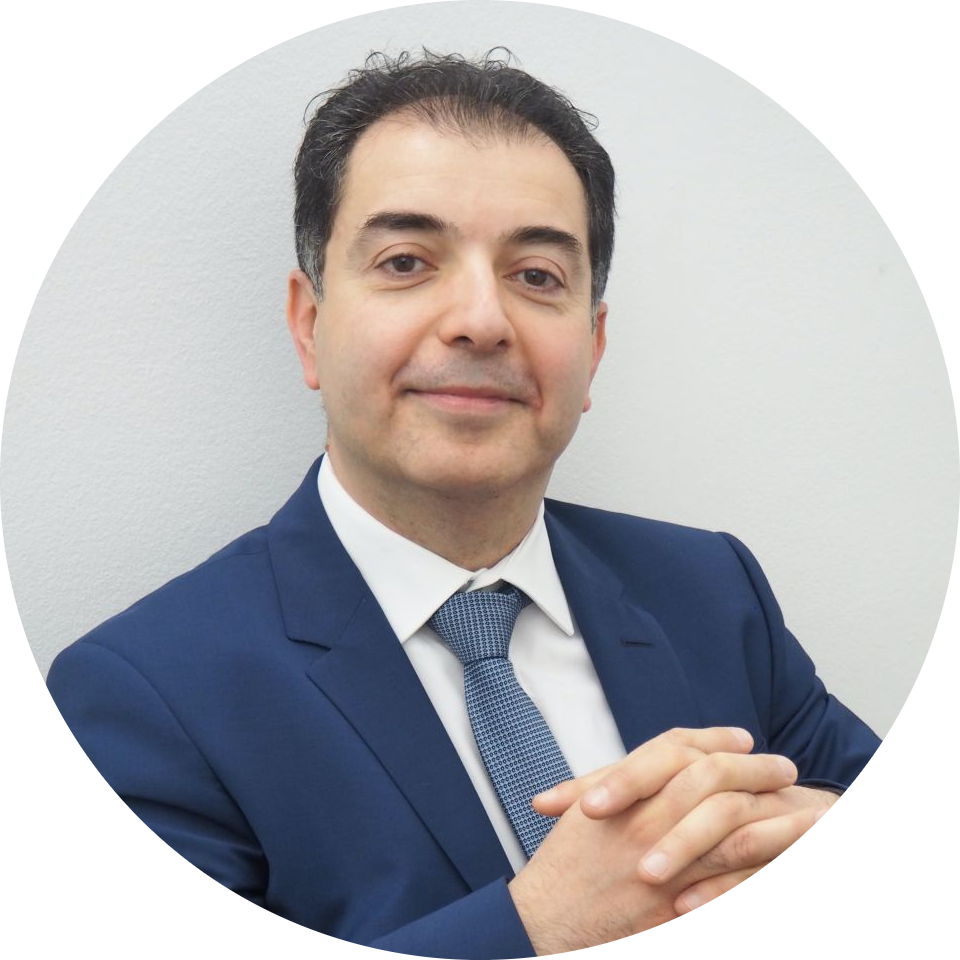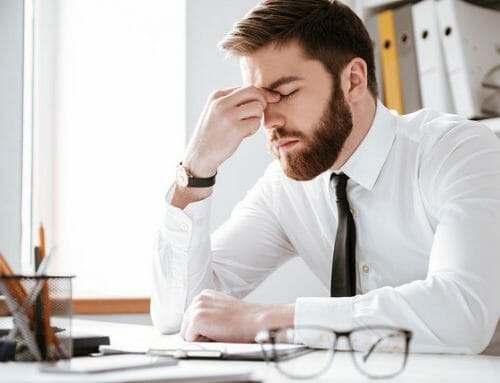
Waking Up With Dry Eyes: Causes & Treatment
Waking up with dry eyes can be frustrating and uncomfortable, and many people are unsure of the best way to deal with this issue. It is one of the most common eye issues faced by people in the UK and is caused by your eyes either not producing enough tears or those tears evaporating too quickly. Often when you experience dry eye symptoms in the morning, this means that your eyes don’t stay properly closed overnight, leading to your eyes drying out.
Fortunately, dry eye syndrome can be easily and effectively treated, either at home or with some help from your ophthalmologist. In this article, we will discuss what causes dry eyes in the morning, possible complications and how the condition can be treated.
What Causes Dry Eyes In The Morning?
There are a number of reasons why you might wake up with dry eyes, and most can be treated effectively. It is important to treat your dry eyes early to prevent complications and to improve your overall quality of life.
Some of the most common causes are:
- Your eyelids are not closed properly (nocturnal lagophthalmos)
- Your tears are of poor quality
- You are not producing enough tears
Nocturnal Lagophthalmos
Nocturnal lagophthalmos is characterised as being unable to fully close your eyes while sleeping. It can be caused by a weakness in the seventh cranial nerve, known as the facial nerve that controls the eyelids. Deformation of the eyelid’s shape, or trauma to the jaw or skull may also cause this condition. The inability of the eyelid to close fully results in faster evaporation of tears, leading to dry eyes in the morning. Nocturnal lagophthalmos must be treated effectively, or it can lead to issues like cornea damage which may impair vision.
Tear Quality
Our eyes need constant lubrication throughout the day in order to keep the surface of the eye healthy. Tears are the eye’s natural lubricants. They ease the friction between the eye and eyelid while blinking, help to wash the dirt and debris from the eye, fight germs and bacterias and keep the lens clear.
There are three layers in the tear film: oil, water and mucus. Water gets secreted from the lacrimal glands to hydrate, oil is produced by meibomian glands to create the lipid barrier, preventing it from evaporating and mucus distributes it evenly on the surface of the eye.
All three layers need to work accordingly. When one of the elements in the tear film is not functioning well, we get disbalanced in the tear film, resulting in poor tear quality. This is one of the most common causes of dry eyes, and the symptoms often can be more severe in the morning.
Tear Production
There are two main tear glands (lacrimal glands), one over each eye, responsible for producing water in the tear film. And there are around 25-40 meibomian glands in your upper lid and around 20-30 in your lower lid secreting the oil to help water from evaporating.
As we age, tear production slows down, causing eyes to feel uncomfortable and dry. When meibomian glands are blocked or not producing enough oil, the water from the tear film evaporates too quickly, leaving eyes dry and sore. Medical conditions like Blepharitis (inflammation of the eyelid) caused by clogged meibomian glands, often leads to low oil production resulting in volume of tears on the eye surface. Other conditions contributing to low tear production are diabetes, rheumatoid arthritis, issues with thyroid or Sjögren’s syndrome.
Various medications can cause low tear production and dry eyes. Most common of them are:
- Antidepressants
- Antihistamines
- Chemotherapy medications
- Hypertension medications
- Painkillers
- Hormone replacement therapy
You should speak to your doctor or pharmacist if you are concerned your medication is causing your morning dry eyes. They will be able to offer advice to treat dry eyes or recommend alternative medications.
Dry Eye Complications
Waking up with dry eyes is not usually cause for concern, but if the symptoms persist it is vital to seek treatment as soon as possible. In rare cases, dry eyes can lead to corneal damage, which can result in vision impairment. This is because bacteria is normally flushed from the surface of the eye with tears, but without proper tear production or quality, bacteria may be able to get past the eye’s defences. A corneal infection is one of the most serious dry eye complications. In addition, if dry eyes are left untreated, they can cause friction on the cornea, which may result in scratches or damage.
How To Treat Dry Eyes At Home
Symptoms of dry eyes in the morning can be eased with home remedies. These may be recommended by your doctor or pharmacist, or you might try these before you undertake more intensive treatments. Some common and effective home remedies for dry eyes include:
- Drinking water: Stay hydrated by drinking 8-10 glasses of water.
- Warm compress: They can help to unclog oil glands. Apply clean, warm cloth to the closed eyelids gently a few times a day for a couple of weeks.
- Eye hygiene: Wash your eyelids and massaging the gland area gently, especially near the eyelash line
- 20-20-20 rule: Take regular breaks from digital screens during the day: every 20 minutes spent on the screen, take a 20 second break and look 20 feet away.
- Using a humidifier at night
For more severe cases of dry eyes in the morning, please seek to see your doctor as soon as possible.
How To Treat Dry Eyes In The Morning
If you tried home remedies but are still getting uncomfortable, gritty and sore eyes in the morning there are other various ways to treat dry eyes. Your doctor might prescribe you medicated eye drops or night ointments. These are all highly effective, However, the treatment you receive will depend on the severity of the condition and the cause behind it. Some of the common treatments include:
- Artificial tears which can help lubricate your eyes overnight
- Punctal plug, also known as punctal occlusion, where a doctor closes the duct that drains your tears
- Tear stimulating medications
- Optima IPL Treatment
Contact us at Eye Clinic London for more information.
How We Can Help
We have many treatment options available for patients who experience dry eyes in the morning. We pride ourselves in offering the very best in comprehensive care, from diagnosis to treatment and aftercare. We offer dry eye treatments ranging from Optima IPL treatment, using intense pulsed light to unblock clogged glands, to eyelid massage and medications.
If you want to take the best steps towards resolving your dry eyes in the morning, get in touch today for a consultation with one of our expert doctors.
You can also take our Dry Eye Quiz to help you find out if you have a dry eye disease and what you can do to avoid eye damage.
Share This Story, Choose Your Platform!
Suffering from dry eyes?
Take our 2-minute online dry eye assessment to see if we can help alleviate your symptoms and tackle your condition
Our most popular treatments
What our patients say…
“As soon as I met Mr Hamada, I knew I was in safe hands. He is an expert in his field, and very reassuring. His work was impeccable, and I would thoroughly recommend him to anyone wanting a professional, kindly, expert service.”
“I came all the way from the US to be evaluated by Mr. Samer Hamada who provided me with a world-class experience. I was treated with technology that doesn’t exist in the United States. My vision improved significantly since the surgery. Mr. Samer Hamada is definitely a Keratoconus expert.”
“I am glad to be with Mr Hamada. I am glad to be examined by Mr Hamada who acts responsibly and professionally. I never had this experience before from a previous ophthalmologist. I am thankful to Mr Hamada for the successful diagnosis and treatment of my case.”
“What a Consultant. Dr. Hamada is a man who was born for this profession. As soon as we walked into the room you felt that you had met a man who was gentle and kind. His demeanour was of a man who knew his trade. He speaks in a way that you will understand. He explains exactly what is wrong and the way he will help fix it for you.”
“Mr Hamada’s London Eye Care and his team are a delight. Nothing was too much trouble and the help, support, advice and guidance before during and after the surgery was all world class. I have worn glasses since the age of 13 years and had the onset of cataracts for the last five so it has all been very much a life changing experience to be free from glasses once more.”
“Mr Hamada, his assistant Joanna and his ophthalmic technicians provide a caring, efficient and high quality service. From the admin through to the surgical aftercare we were very well looked after and we had a high degree of confidence in Mr Hamada’s abilities. Our daughter’s cataracts have been corrected (under general anaesthetic) and her quality of life has improved substantially. You also feel well cared for throughout – the human touch is vital in healthcare, but not always delivered, so well done and thanks to all of the team.”
“We were referred to Dr.Hamada by one of the UK experts. The expert himself admitted that Dr.Hamada was better than him!! We were not disappointed at all. Dr. Hamada was excellent with my child. His communication skills and knowledge were exemplary. He gave us clear management plan and would not hesitate to recommend him.”
“Dr Hamada is an excellent, highly competent doctor with a very kind and sympathetic manner. His reputation for successfully treating dry eye patients seems unparalleled. His team are all extremely friendly and helpful, especially Dr Hamada’s PA Joanna, making the overall experience better than anywhere else I’ve been!”
“Appointment setting and follow-up were very efficient and well managed. Mr Hamada was kind, reassuring, knowledgeable and had a very warm manner with my young son, making him instantly feel at ease. I feel that we can trust him and that he will finally be able to solve my son’s long-term eye problems that have stumped other eye doctors.”
We have replaced some of the images of real patients who provided these testimonials to protect their privacy.

About the expert
Mr Hamada | Consultant Ophthalmologist and Corneal Surgeon
MD, MSc, DO (hons), FRCSEd, FRCOphth I am Samer, founder and consultant ophthalmic surgeon with over 20 years’ experience in ophthalmology. I am a world-renowned specialist in cornea, cataract and refractive surgery. I’m not only a leading surgeon but also the only dual fellowship trained in corneal diseases in children from reputable institutions in the UK. At Eye Clinic London I work closely with other consultant ophthalmologists, optometrists and orthoptists to achieve the best outcomes for our patients. Our main aim is to make sure our patients get the safest and best treatments available to them. We put your safety before anything else so you can rest assured that if you choose us you will be in the best and safest hands.












